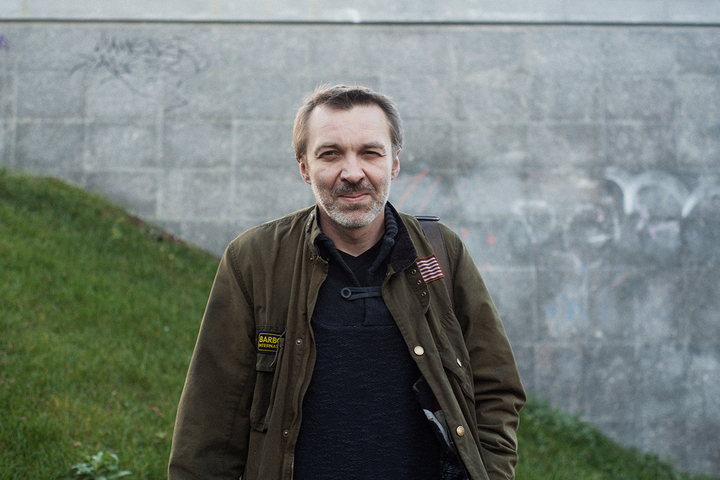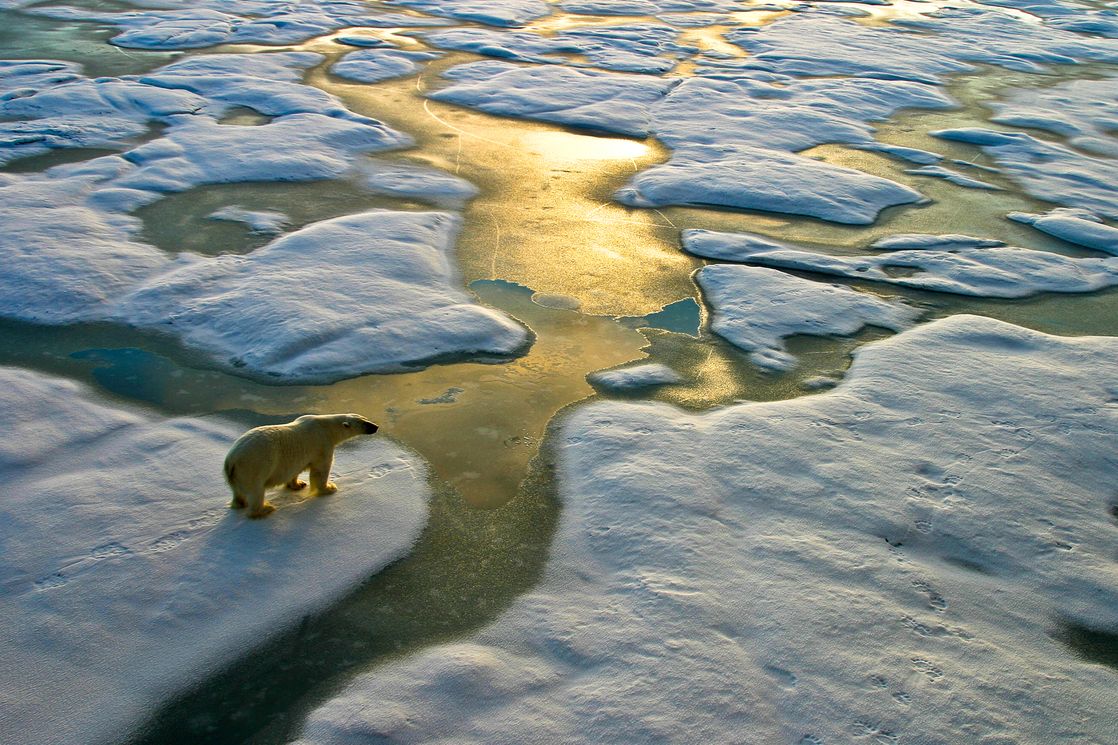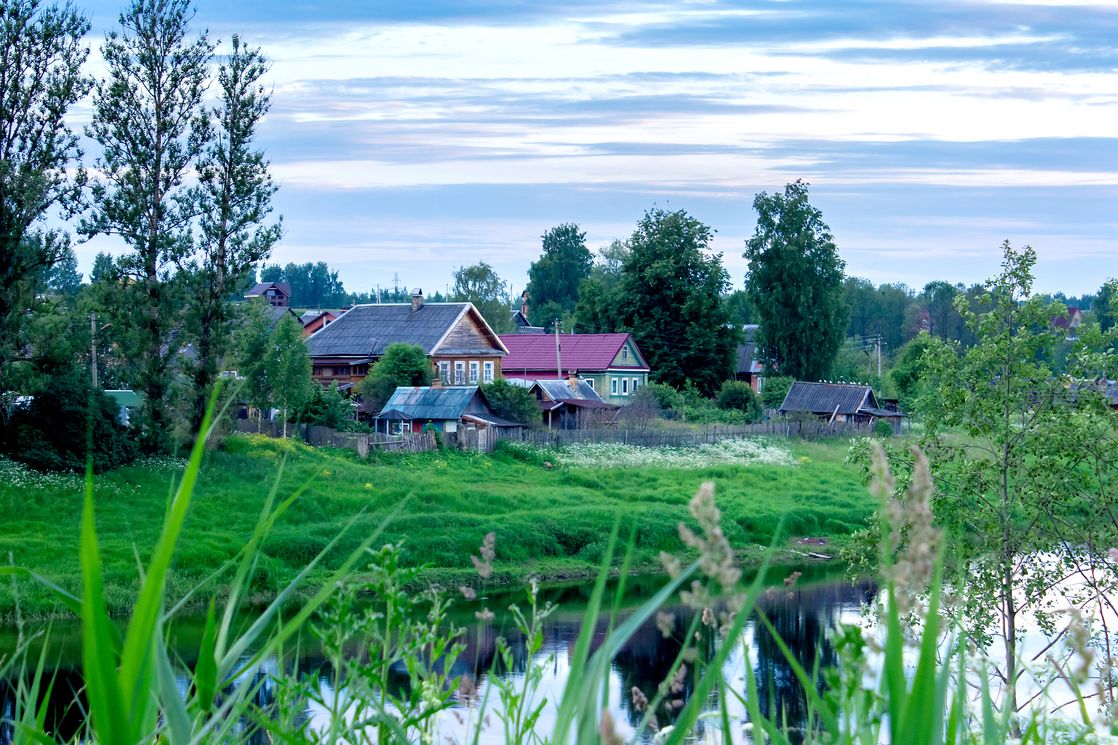A Viral Critique of Modern Society

The coronavirus pandemic is transforming modern society, reviving old social practices and formulas such as the Russian ‘flat-car-dacha’ principle, while opening new technological frontiers and creating new cultural skills. Professor Vitaly Kurennoy, Head of HSE’s School of Cultural Studies, discusses these issues in an op-ed for Izvestiia. Read the full translation of the article below.
The coronavirus’s assault on the life of modern civilization has been rapid and tremendous in its consequences. It has affected our societal foundations and is restructuring the relationships and the boundaries between society and nature. The pandemic has unleashed a full-scale critique of modern society as it lays bare which social practices are viable and opens new technological frontiers that will reshape not only our economy and labour market, but also our cultural competencies.
Rediscovery of Nature
The current situation has renewed the fundamental question of the boundary between culture and nature. Nations, societies, the economy, and everyday life are being transformed by a biological entity invisible to the human eye. This entity originated in a kind of twilight zone, at a point of contact between human civilization and the natural world. Whether it was created intentionally in a research laboratory or was the accidental result of local exotic fare is not important. Nature—the conquest and control of which lies at the centre of European science and technology—has abruptly reasserted itself.
The new natural element, paradoxically, was able to take on such a massive scale and spread with such speed thanks to modern civilization’s infrastructure—its transportation systems and densely populated big cities. The measures now being taken to prevent the spread of the virus constitute a new front in the fight between man and nature, and at the centre of this battle, as in all others before it, is the question of survival.
These events, the outcome of which is far from clear, may have enormous consequences on our modern environmental awareness and how we change and toughen our environmental agenda. Before the pandemic, environmental problems were discussed from the perspective of a human civilization that was well-protected—before the large-scale environmental consequences of global warming set in—from the effects of the elements.

Nature was not an active threat, but rather a passive recipient of civilization’s activities. Man was a pest of planetary proportions, reckless and yet extremely powerful in his abilities. However, he was also seen as a potential almighty patron, able to mitigate most of the damage he had caused to nature if not repair it completely. The current situation is transforming this configuration. Its contours can be defined as man’s inability to protect himself against nature.
In fact, to what extent are humans ready to address global environmental problems? Until very recently, the environmental agenda was one of the main arguments of the globalists who said that the problem of global warming can only be solved by humanity, while individual nations will hardly be able to do anything. However, we can see that governments with their authority have been the main tools of ensuring security in the face of the epidemiological threat. Instead of getting weaker, the governments are getting stronger rapidly in defiance of the overwhelming natural threat. Even more so, they are getting so strong that most of them have introduced states of emergency in their countries.
Public perception of science and its abilities to learn and understand nature are being reconfigured as well. Today nothing is being quoted more than historians’ works on epidemics of the past. On the face of it, entirely new technological means are being used to address the issue.
However, the vast majority of methods we see being employed now are hardly different from those used in combating the plague in the 17th century or the Spanish flu at the beginning of the 20th century: self-isolation, public transport restrictions, quarantine, etc.
These archaic practices clearly contradict the image of science and technology fostered in the public mind by advocates and popularizers of scientific progress. According to this image, modern science has actually reached the limits of understanding of the physical and biological world we live in and is now on the threshold of being able to engineer this world and the other one at the micro level. Yet our helplessness proves it totally wrong.
The power of science and technology is not nearly as limitless as we used to believe. There are still many things that science does not know, and it will take us a lot of time and effort before we can curb the tiny virus. This is not a skeptical argument against the power of science, but rather a serious inoculation against the naïve scientific and technological optimistic beliefs in our abilities to know everything and harness nature.
Natural Selection of Social Practices
As it moves through the capillaries of human society, the natural element plays the unexpected role of cultural and social critic of modern society and its institutions. Engaging in such critique was usually the privilege of intellectuals, but today it has ceased to be theoretical and has become quite practical: when it comes to viable social practices, a massive natural selection has begun.
The short-term outcome of the critique this virus has initiated would be the rehabilitation of old institutions, which, as we understand, are much more resistant to unexpected social disruptions than many of the new ones. Our lives and work are once again concentrated in our homes and families. Separation of the place of living and the place of work, which are merged in Pieter Bruegel’s paintings, is one of the most fundamental peculiarities of the modernist society.
Today we can observe a universal shift from this physical separation to a more traditional work/life balance enabled by the new technological means of remote work. In the current circumstances, the family appears to be the key form of maintaining social stability and comfort, which is proved, for instance, by the mass exodus of students from big cities to their native towns.
A universal renaissance of the ‘distributed lifestyle’ (Simon Kordonsky) is what we can expect in the near future—a specific form of the family survival economy in Russia evolved in the Soviet period and received new impetus in the 1990s.
The ‘Flat-Car-Dacha’ formula underlying this lifestyle is regaining its popularity. There is no doubt that the majority of Russian citizens will be meeting this spring at their dachas and vegetable gardens, transforming their lawns into vegetable beds instead of mowing them.
The demand for rental dachas in the outer regions of Moscow for the coming summer has almost doubled (with an increase of 90%). What seemed a relic doomed to be obsolete suddenly turned out to be a Russian advantage capable of addressing the most unexpected economic and social crisis.
The pandemic has brought back—at least for the time being—the significance of the personal car, another paradigm symbol of the modernist industrial society. Until recently the car-free lifestyle seemed to be the most obvious and inevitable trend. Car sharing, taxi, and public transport was believed to be able to consign personal cars to the dustbin of history. However, the demand for taxi and car sharing has plummeted (by 25-30%) even in the capital, with transportation companies pleading with the government for incentives and subsidies and BlaBlaСar, an international carpooling service, suspending its operations. The personal car appears to be a fundamental advantage in terms of safety under a crisis overlooked by gullible futurologists.
Today we are witnessing the rapid disappearance of various mass publicity phenomena—the 'Mass Ornament' (Siegfried Kracauer), which used to be a constant subject of cultural criticism by modern intellectuals, is ceasing to exist. People are no longer form ‘crowds’ or ‘mobs’; they are refusing to enjoy any collective forms of leisure or spend their idle time in a crowd. People are persuaded to stay at home alone or with their families by the virus rather than by moral arguments of critics. Anyway, let’s not give too many examples. We’d better look at the current situation as a whole.
The pandemic has acted as an uncompromising critic of modern society in three main aspects. The first aspect is that personal is better than public, communal, or shared (such as with housing, vehicles, the ability to get groceries, etc.). The second aspect is that individual is better than collective: mass cultural and sports events have been cancelled, mass resort tourism has been banned, and so on. All of our practices are gradually becoming more and more individual. Finally, the third aspect is that national and regional are more important than global: the current measures aimed at preventing the spread of the pandemic are being implemented at the governmental and regional levels, while global structures (including science and technology) have not yet proved to be effective, even though it is from them that we expect decisive breakthroughs.

These have yet to become long-term trends, but the current dramatic change in lifestyle will, in any case, substantially affect the strategic forms of social activities of those who have lived through it. This is true even if we assume that life will get back to normal quite soon.
New Technological Frontiers and Cultural Skills
The pandemic is not only opening up a critique of modern society’s social practices. It is also testing new communicative abilities of modern civilization, many of which will receive a huge impetus for further development. Much has been said of how these events will influence the system of education, the labour market, office workers’ employment, and the retail sector. Universities and their employees have already appreciated the advantages of online education formats, and they are mastering various tools for remote education. In the future, we will face a large-scale technological and organizational reconfiguration of the entire education system and its markets.
In sum, we can say that all economic sectors related to online goods and services, as well as their consumption, have been given a huge impetus for transformation and development. For instance, online cinemas and multimedia streaming platforms have reported both a sharp growth in their numbers of users and in the consumption of their services (by 20-50%). The same goes not only for video content, but also e-book sales, which have also increased drastically.
In Russia, this growth also means the much wider use of legal digital content and a dramatic shift in media consumption from the traditional television.
Meanwhile, the new social configuration adversely impacts a wide range of key economic, social, and cultural sectors. This means that new technological frontiers will be established to make up for the current deficit.
Sharply declined actual spatial mobility has affected very sensitive aspects of the modern world, from global mobility of the ‘creative class’ to the international travel industry and world sports and cultural events. All interaction and social and cultural practices which rely primarily on offline communication and authenticity of experience (such as visiting museums or sports events) have significantly reduced.
Breakthrough success awaits those who will be able to offer qualitatively new services in virtual and augmented reality, which enables full presence and co-presence. The utopia of the artificially created replica of reality—whether in relation to travelling, business meetings, going to a bar, or sex—has received a new impetus for prompt and massive implementation.
We have yet to differentiate between the current and long-term configurations. However, there will be changes not only in advanced communication technologies, but also the service sector—the sector with the highest number of employees.
The social changes triggered by the pandemic are competing with new technological opportunities and horizons. The jury is still out on whether the number of couriers will increase after online sales take the place of almost all traditional stores, or, rather, as some technology optimists believe, whether drones will replace couriers. However, it is obvious that we have found ourselves in a new technological corridor of opportunities able to sharply transform many segments of the service industry.
In certain cases, the depressive aftermath of the new situation related to the reduction in the spatial mobility will be compensated by both new technologies and changes to our cultural practices. This means, for instance, the transformation of the cultural valorization strategies (ascribing cultural value), typical of modern ‘cultural capitalism’.
Social networks used to be flooded by evidence of the submergence into exotic authenticity in the form of uploaded photo albums and stories about travelling, local cuisine, and visiting natural landmarks. Today, this appetite for authenticity and authentic experience has to be moderated due to the sharply reduced mobility. To maintain this skill of ascribing cultural values, we must acquire new cultural skills, such as learning to see and enjoy unusual and genuine things in our everyday and local routines.
See also:
HSE Biologists Explain Mechanism behind Coronavirus Evolution
A team of researchers, including scientists of the HSE Faculty of Biology and Biotechnology, have analysed the evolutionary path of the coronavirus from the Wuhan variant to Omicron. Their findings indicate that many genomic mutations in SARS-CoV-2 are shaped by processes occurring in the intestines and lungs, where the virus acquires the ability to evade the inhibitory effects of microRNA molecules. The study findings have been published in the Journal of Medical Virology.
Russian Researchers Explain Origins of Dangerous Coronavirus Variants
HSE researchers, in collaboration with their colleagues from Skoltech and the Central Research Institute for Epidemiology, have uncovered the mechanisms behind the emergence of new and dangerous coronavirus variants, such as Alpha, Delta, Omicron, and others. They have discovered that the likelihood of a substitution occurring at a specific site of the SARS-CoV-2 genome is dependent on concordant substitutions occurring at other sites. This explains why new and more contagious variants of the virus can emerge unexpectedly and differ significantly from those that were previously circulating. The study’s findings have been published in eLife.
HSE Biologists Prepare Strategy for Universal COVID Test
Russian researchers have developed a strategy to create a cheap and rapid COVID-19 test based on isothermal amplification. According to their publication in Applied Biochemistry and Microbiology, use of this strategy will make it possible to create universal test systems for any of the COVID-19 variants.
People’s Values Affect Their Attitudes to COVID-19 Restrictions
HSE social and political analysts have established which value models and circumstances promote support for restrictive government policies aimed at combatting the coronavirus pandemic. The research is published in Plos One.
Model of Predator-Prey Relationship Helps Predict Spread of COVID-19
Researchers from the HSE Faculty of Economic Sciences have proposed a mathematical model that describes the course of the COVID-19 pandemic, taking into account the restrictions applied in different countries. The model will help governments make reasonable and timely decisions on introducing or lifting restrictions. The paper was published in Eurasian Economic Review.
HSE University Classes to Be Held On Site for All Students
Classes in the new academic year will take place on site for students of all HSE University campuses. Existing COVID safety precautions will remain in effect.
Russian Scientists Investigate the Immune Response to SARS-CoV-2 Variants
HSE University researchers assessed the effectiveness of the T-cell immune response to 11 variants of SARS-CoV-2. Their findings have been published in Nucleic Acids Research.
First-year Students Will Be Able to Get COVID Shots at HSE University
The new regulations ‘On the Organization of Studies for the 2021/2022 Academic Year’ feature in detail what will change for first-year students in the new academic year. HSE University will be organizing a vaccination drive in September for students aged 18 and over who are unvaccinated. Younger students will be eligible for vaccination once they turn 18.
New Safety Measures to Be Introduced at HSE University
Starting September 1, 2021, HSE University-Moscow is introducing new safety policies on campus to prevent the spread of COVID-19. They apply to students over 18 years old who have not had COVID during the last six months, have not been vaccinated (with a Russian or a foreign vaccine), nor have a medical exemption from vaccination. Free vaccination will be available on campus to all arriving students.
HSE University Creates the Viral Genealogy Simulator to Model the Spread of COVID-19
Researchers of HSE Tikhonov Moscow Institute of Electronics and Mathematics (MIEM), in cooperation with their colleagues from the University of California, Santa Cruz (UCSC), and The European Bioinformatics Institute (EMBL-EBI), have developed software to model the spread of the COVID-19 global pandemic. This is the world’s fastest Viral Genealogy Simulator (VGsim). For more details about this scalable simulator, read the reprint on medRxiv. The code is freely available at GitHub.


